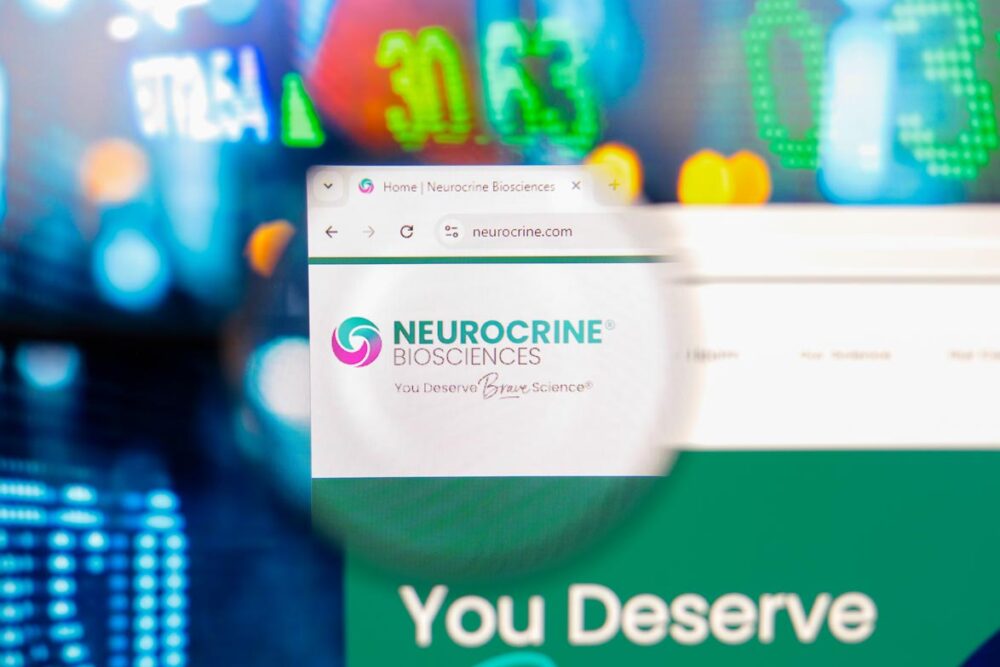Advertisment
FDA grants approval of Crenessity (crinecerfont), a first-in-class treatment for children and adults with classic congenital adrenal hyperplasia – Neurocrine Biosciences

Neurocrine Biosciences, Inc. announced the FDA approved Crenessity (crinecerfont) capsules and oral solution as an adjunctive treatment to glucocorticoid replacement to control androgens in adult and pediatric patients four years of age and older with classic congenital adrenal hyperplasia (CAH), a rare, serious and lifelong genetic condition involving the adrenal glands. Crenessity, a potent and selective oral corticotropin-releasing factor type 1 receptor (CRF1) antagonist, is the first and only classic CAH treatment that directly reduces excess adrenocorticotropic hormone (ACTH) and downstream adrenal androgen production, allowing for glucocorticoid dose reduction. It is a breakthrough in the treatment landscape for classic CAH.
“For the last three decades, Neurocrine Biosciences, together with our late founder, Wylie W. Vale, has conducted groundbreaking research uncovering the critical role of corticotropin-releasing factor and its receptor, CRF1, in the pathophysiology of congenital adrenal hyperplasia,” said Kyle W. Gano, Ph.D., Chief Executive Officer, Neurocrine Biosciences. “The approval of Crenessity is a significant milestone for the CAH community, and we are grateful to the individuals who participated in our clinical trials, including their families and caregivers, and to the clinical investigators who helped advance a new therapy and class of medicines.”
“Patients and families struggle to achieve balance between managing the symptoms of CAH and the side effects or complications of treatment with high-dose steroids, which may impact quality of life,” said Dina Matos, Executive Director, CARES Foundation. “We are grateful to Neurocrine Biosciences for engaging with our community throughout the drug development process to understand our needs and ultimately providing this new medication that can help reduce excess adrenal androgens and the need for high-dose steroid treatment for individuals living with CAH.”
Crenessity is expected to be commercially available in approximately one week. The medication will be provided through PANTHERx Rare, a specialty pharmacy, to centralize and simplify Crenessity prescription fulfillment.
The FDA approval is supported by the largest-ever clinical trial program of classic CAH, the CAHtalyst Pediatric and Adult Phase III global registrational studies. CAHtalyst Phase III data results in pediatric and adult patients with classic CAH were published in The New England Journal of Medicine.
“The clinical results across both CAHtalyst studies support the efficacy and safety profile of Crenessity and its ability to reduce the overproduction of adrenal androgens, allowing for a meaningful reduction in glucocorticoid dosage, while maintaining or enhancing control of these androgens,” said Richard Auchus, M.D., Ph.D., Professor, University of Michigan Health, Principal Investigator. “Chronic treatment with supraphysiologic glucocorticoids can cause a number of short- and long-term health consequences, such as obesity, hypertension and osteoporosis, so the ability for patients with CAH to lower their glucocorticoid dose to a more physiologic level can have profound benefits.”
In both CAHtalyst studies, Crenessity enabled lower steroid doses and decreased androgen levels. Crenessity was well tolerated with few treatment-related adverse events in both CAHtalyst studies. Pediatric and adult patients taking Crenessity had no treatment-related serious adverse events.
Adrenal insufficiency and crisis are risks of living with CAH that Crenessity does not address and can occur when a patient’s GC dose is too low. In the CAHtalyst Pediatric study, there were no cases of adrenal crisis among patients taking Crenessity or placebo. In the CAHtalyst Adult study, two patients (1.6%) taking Crenessity experienced adrenal crisis. No patients on placebo experienced adrenal crisis. However, one patient (1.7%) on placebo experienced adrenal insufficiency. Patients should work with their healthcare provider to manage GC dosing while taking Crenessity.
Citation – Phase III Trial of Crinecerfont in Pediatric Congenital Adrenal Hyperplasia. Authors: Kyriakie Sarafoglou, M.D., Mimi S. Kim, M.D., Maya Lodish, M.D. et al. Published June 2, 2024 N Engl J Med 2024;391:493-503 DOI: 10.1056/NEJMoa2404655 VOL. 391 NO. 6
Citation: Phase III Trial of Crinecerfont in Adult Congenital Adrenal Hyperplasia. Authors: Richard J. Auchus, M.D., Ph.D., Oksana Hamidi, D.O., Rosario Pivonello, M.D. et al. Published June 1, 2024 N Engl J Med 024;391:504-514 DOI: 10.1056/NEJMoa2404656 VOL. 391 NO. 6





